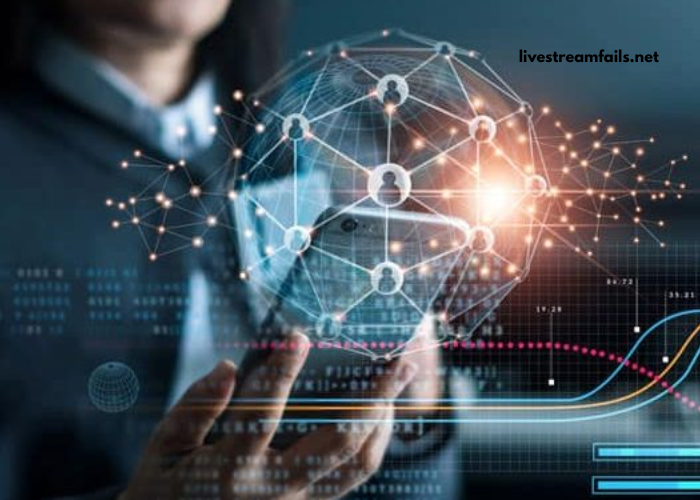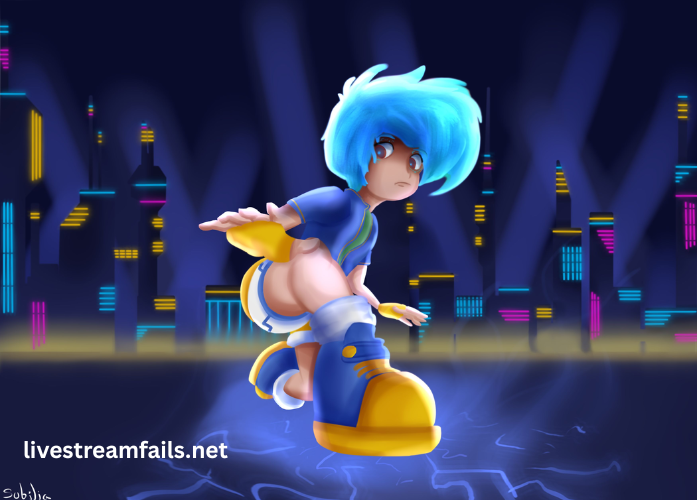In 2025, technology continues to transform industries in ways previously unimaginable. From automation and artificial intelligence (AI) to blockchain and quantum computing, innovation is reshaping business models, operations, and customer experiences across various sectors. These groundbreaking technologies are not only making processes more efficient but are also creating new opportunities for growth and advancement. In this article, we will explore some of the most significant tech innovations that are expected to revolutionize industries in 2025.
The Rise of Artificial Intelligence and Machine Learning
Artificial Intelligence (AI) and Machine Learning (ML) are undoubtedly among the most transformative technologies across all industries. In 2025, AI is expected to be deeply integrated into business processes, providing companies with advanced tools for decision-making, automation, and personalized services.
Enhanced Automation and Efficiency
AI-powered automation will continue to revolutionize operations in manufacturing, logistics, and other industries. AI systems can process vast amounts of data to identify patterns, predict outcomes, and perform repetitive tasks without human intervention. This enhances productivity and reduces human error, leading to lower operational costs and faster production times.
In industries such as automotive manufacturing, robots and AI-driven machines can streamline assembly lines, ensuring precision and minimizing delays. Additionally, AI in logistics can optimize delivery routes, reducing fuel consumption and improving overall efficiency.
Personalized Customer Experience
In 2025, businesses will rely more heavily on AI and ML to deliver highly personalized experiences to customers. AI can analyze consumer behavior and preferences to create tailored products, services, and recommendations. For example, e-commerce platforms will use AI to predict the products customers are most likely to buy based on previous interactions, resulting in improved sales and customer satisfaction.
In healthcare, AI-powered algorithms can help doctors provide personalized treatment plans based on a patient’s medical history, genetic information, and lifestyle, ultimately leading to better patient outcomes.
Quantum Computing: Unleashing Unprecedented Power
Quantum computing is another technology set to revolutionize industries by 2025. Unlike traditional computers that process information in binary form (0s and 1s), quantum computers use quantum bits or qubits, which can represent and store data in multiple states simultaneously. This ability to perform complex calculations at incredible speeds has the potential to disrupt industries that rely heavily on data processing.
Advancements in Drug Discovery
The pharmaceutical industry is one area where quantum computing is expected to have a significant impact. Quantum computers can simulate molecular structures and chemical reactions with unmatched accuracy, enabling faster drug discovery and development. This could drastically reduce the time it takes to bring new treatments to market, addressing global healthcare challenges such as pandemics and rare diseases.
Optimizing Supply Chains
Quantum computing can also revolutionize supply chain management by solving complex optimization problems that traditional computers cannot handle efficiently. For instance, quantum algorithms can help companies optimize inventory levels, predict demand, and minimize delays in production and distribution. This will be particularly valuable in industries such as retail, where timely deliveries and cost-effective operations are critical.
Blockchain Technology: Secure and Transparent Transactions
Blockchain technology, known primarily for its association with cryptocurrencies, is making a significant impact in industries such as finance, healthcare, and logistics. By providing a secure and transparent way to record transactions, blockchain has the potential to reduce fraud, streamline processes, and improve trust among businesses and consumers.
Revolutionizing Finance with Decentralized Finance (DeFi)
In 2025, decentralized finance (DeFi) will continue to disrupt traditional financial services by enabling peer-to-peer transactions without intermediaries such as banks. Blockchain-based platforms allow individuals to borrow, lend, and trade assets in a decentralized manner, offering greater financial inclusion to people who are unbanked or underbanked.
By removing intermediaries, DeFi platforms can lower transaction fees and improve accessibility to financial services, democratizing the financial system. Additionally, blockchain’s transparency ensures that all transactions are visible and immutable, increasing trust and accountability in financial systems.
Enhancing Supply Chain Transparency
Blockchain is also being used to enhance transparency and traceability in supply chains. With blockchain, each step in the supply chain can be recorded, allowing companies and consumers to track the origin of products, verify their authenticity, and ensure ethical sourcing practices. For example, in the food industry, blockchain technology can help trace the journey of food products from farm to table, ensuring quality and safety.
5G Technology: Enabling the Next Generation of Connectivity
5G technology, the fifth generation of mobile networks, is expected to have a profound impact on industries in 2025. With its ultra-fast speeds, low latency, and ability to connect a massive number of devices simultaneously, 5G will open the door to new applications in areas such as healthcare, transportation, and entertainment.
Advancements in Healthcare with Telemedicine and Remote Monitoring
One of the key benefits of 5G technology is its ability to enable real-time communication and data transfer, making telemedicine and remote healthcare monitoring more efficient and effective. With 5G, doctors can conduct virtual consultations with patients without lag or interruption, and remote monitoring devices can transmit patient data in real time to healthcare providers.
This has the potential to greatly improve access to healthcare, particularly in rural areas where medical services may be limited. Additionally, 5G can facilitate the use of wearable health devices that track vital signs and detect potential health issues before they become serious, leading to more proactive care.
Smart Cities and Autonomous Vehicles
5G will also play a critical role in the development of smart cities, where connected devices and sensors can improve urban living. 5G’s low latency and high bandwidth will support the integration of technologies such as autonomous vehicles, traffic management systems, and public safety networks.
Autonomous vehicles, for example, require real-time communication between vehicles and infrastructure to navigate safely. With 5G, self-driving cars can communicate with traffic lights, road sensors, and other vehicles to optimize traffic flow and prevent accidents.
The Impact of Internet of Things (IoT) on Industries
The Internet of Things (IoT) continues to expand, connecting billions of devices and sensors that can collect and share data. In 2025, IoT will be a central technology in industries such as agriculture, manufacturing, and healthcare, driving greater efficiency, data-driven decision-making, and automation.
Smart Agriculture for Increased Food Production
In agriculture, IoT devices such as sensors and drones are already being used to monitor crop health, soil conditions, and weather patterns. By 2025, the use of IoT in agriculture will be even more widespread, enabling farmers to make data-driven decisions about irrigation, fertilization, and pest control. This will not only increase crop yields but also reduce resource waste, leading to more sustainable farming practices.
Manufacturing and Predictive Maintenance
In manufacturing, IoT devices can be embedded in machinery and equipment to monitor their performance in real time. By analyzing this data, businesses can predict when equipment is likely to fail and perform maintenance before a breakdown occurs, reducing downtime and increasing productivity. This predictive maintenance approach is set to become a standard practice across manufacturing industries in 2025.
Robotics and Automation: Changing the Workforce
Robots and automation technologies are already transforming industries such as manufacturing, healthcare, and logistics. By 2025, robotics will be even more advanced, with machines performing a wider range of tasks alongside humans.
Collaborative Robots (Cobots) in the Workplace
Collaborative robots, or cobots, are designed to work alongside humans, complementing their skills and improving productivity. In manufacturing and assembly lines, cobots can perform repetitive tasks while humans focus on more complex activities that require creativity and decision-making. These robots are expected to play a major role in improving efficiency, quality, and safety in the workplace.
Robotic Process Automation (RPA) in Business Operations
Robotic Process Automation (RPA) is another key development in automation. RPA uses software robots to automate routine and rule-based tasks, such as data entry, invoice processing, and customer service inquiries. By 2025, RPA will be widely adopted in industries like finance, healthcare, and human resources, freeing up employees to focus on higher-value work and reducing operational costs.
Conclusion
In 2025, technology will continue to drive innovation across all industries, transforming business models, improving efficiency, and creating new opportunities for growth. AI and machine learning, quantum computing, blockchain, 5G, IoT, and robotics are just a few of the key technologies that will shape the future of industries worldwide. As these innovations continue to evolve, businesses that embrace them will be well-positioned to stay competitive and deliver exceptional value to their customers.
By understanding the potential of these tech innovations and implementing them strategically, companies can not only stay ahead of the curve but also play a vital role in shaping the future of their industries. The revolution is already underway, and those who are prepared to adapt to the changes will thrive in this new era of technological advancement.




